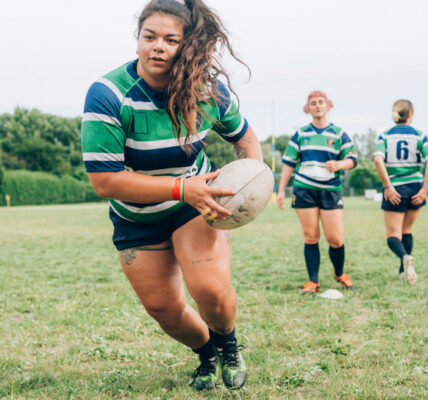Loyalty in rugby used to be assumed. You played for your club, maybe your province, and if you were good enough, you wore that jersey until the body told you it was time to stop. Now, it’s a choice. A hard one. In a game shaped increasingly by contracts, agents, and the lure of the next best offer, staying has become an act of quiet resistance. There are still players who turn down bigger cheques and brighter lights, not because they lack ambition, but because something in them says, this is my team, this is my place, this is enough.
At College Rovers in Durban, Shaun Pillay has worn the same kit for over a decade. He’s thirty-two now, not the fastest anymore, and not on anyone’s radar beyond the KZN Premier League, but he’s still there. He’s seen players come and go, youngsters brought in from out of town, imports who stayed for a season and moved on when the numbers didn’t work out. Shaun stayed. Not because he had nowhere else to go, but because he never wanted to go. He knows every blade of grass at KP 3. Knows where the surface gets soft in winter. Knows which part of the touchline the regulars gather to heckle the ref. And more than anything, he knows the club doesn’t just need players, it needs anchors.
Loyalty isn’t glamorous. It doesn’t make headlines. It doesn’t trend. But it’s visible in the small gestures, the guy who still does the warm-up with the juniors, who still helps pack up cones, who checks on a teammate’s injury two days after the game. These are the players who become part of the club’s furniture, not because they’re stuck, but because they’re committed. There’s a difference. Commitment costs something.
In modern rugby, loyalty is harder to hold onto. The professional era has normalised movement. A player might wear three jerseys in two years, depending on contracts, injuries, selections. It’s not betrayal, it’s survival. No one begrudges players doing what’s best for their families. But in that swirl of movement, there’s something profound about the ones who stay put. Who take less money to keep their badge. Who miss out on TV exposure but know every groundsman by name.
Further inland, in the Midlands, there’s a hooker named Sibusiso who’s been at the same club since he was a teenager. He’s had offers. Border came calling once. So did a team in Mpumalanga. He nearly took one of them, even signed a provisional letter. But when it came time to pack his bag, he couldn’t do it. His mother was sick. His younger brother had just made the U15s. And the thought of playing somewhere where no one knew his story, where he had to explain why he played the way he did, just didn’t sit right. So he stayed. And he doesn’t regret it.
 Staying means something different in rugby. It doesn’t mean comfort. Often it means less opportunity, less recognition. But it offers a kind of belonging that money can’t buy. When you’ve trained on the same field for years, when the bar staff know your order, when your old coach still comes to matches, there’s a depth to that identity. You’re not just a player. You’re part of the fabric. And when you run out onto that field, you’re not doing it for exposure. You’re doing it for memory. For the teammates who left. For the ones coming up. For the quiet pride of being exactly where you’re supposed to be.
Staying means something different in rugby. It doesn’t mean comfort. Often it means less opportunity, less recognition. But it offers a kind of belonging that money can’t buy. When you’ve trained on the same field for years, when the bar staff know your order, when your old coach still comes to matches, there’s a depth to that identity. You’re not just a player. You’re part of the fabric. And when you run out onto that field, you’re not doing it for exposure. You’re doing it for memory. For the teammates who left. For the ones coming up. For the quiet pride of being exactly where you’re supposed to be.
Loyalty doesn’t mean inertia. Many of these players could move on if they wanted to. Some have day jobs that pay enough. Some are good enough to crack wider squads. But they choose something else. Continuity. Community. That’s not a lack of ambition. It’s a different kind of ambition. The kind that values legacy over labels.
In Umlazi, at a club ground that doesn’t have working lights after dark, a flyhalf named Duma has captained his team for six seasons. He gets phone calls every year from development academies. They tell him he has potential. That he could go further. He always listens. He always thanks them. But when the call ends, he gets back to doing the same thing he always does, running drills with kids on Wednesday nights. He’s not interested in being a maybe somewhere else. He wants to be a sure thing where he is.
These stories don’t often make it into the rugby discourse. The spotlight falls on those who move, who climb, who explode onto new stages. That’s fine. That’s part of the game. But it’s worth remembering that every club’s heartbeat is made of players who never left. Who showed up through slumps and coaching changes, through dry seasons and muddy ones, through injury runs and fixture chaos. They don’t get awards. But they keep the structure intact.
In a time where everything is built for speed and change, staying has become something rare. Something valuable. Not as a refusal to grow, but as a declaration of identity. This is who I am. This is where I’m from. This is where I play. That kind of loyalty doesn’t shout. But it lasts.




